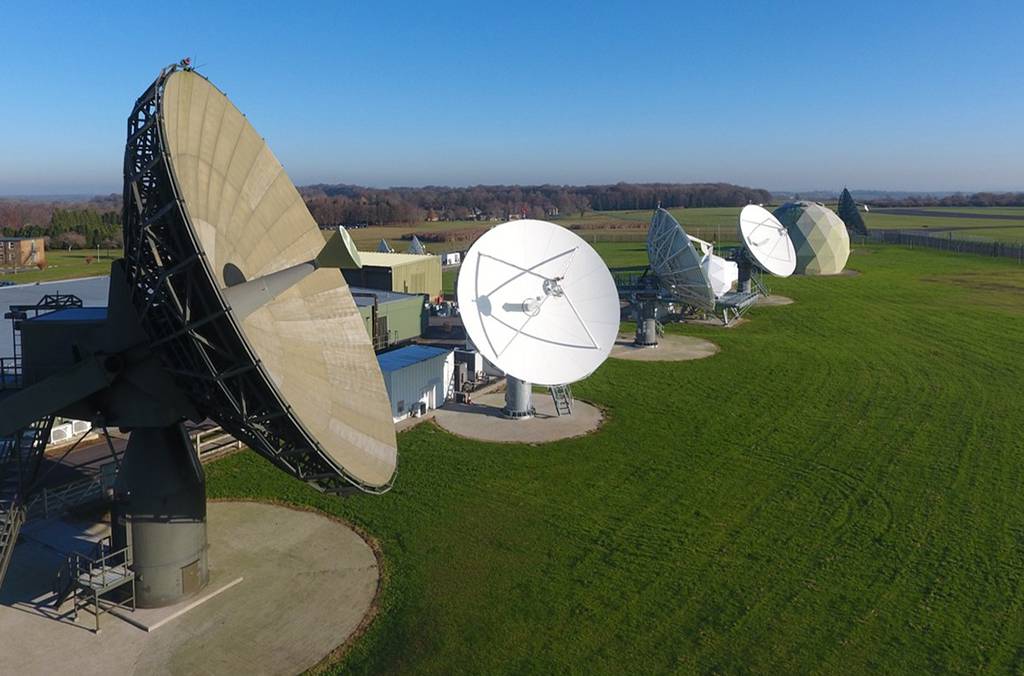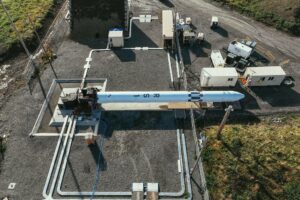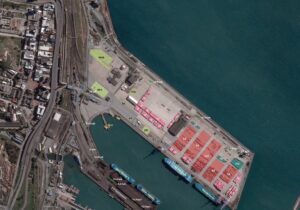
LONDON — Babcock International has secured a deal to run the ground elements of the British military’s Skynet satellite communications system.
The contract, worth at least £400 million ($480 million), will see the British support services company manage and operate the constellation of satellites currently providing secure communications for UK military and government users for a minimum of six years.
Installation of new user terminals at various ground stations is also part of the deal.
Known as the Skynet Service Delivery Wrap program the deal is part of a wider £6 billion project aimed at updating British satellite communication capabilities in the late 2020s and beyond.
The Skynet 6 program is by far the largest part of projected spending by the British on space capabilities over the next decade.
Announcing the deal, defense procurement minister Alex Chalk said space capabilities were becoming a critical part of maintaining battlefield advantage.
“The UK’s next-generation military satellite communications system will keep us at the forefront of this critical domain and the work under this contract will bolster our resilience for years to come,” said Chalk.
Babcock is the leader of an industry team which includes SES, GovSat and Intelsat.
Lockheed Martin UK, Serco, Inmarsat, Viasat and Airbus Defence and Space were among the rival bidders for the contract.
Ground elements of the Skynet system are currently run by Airbus under a longstanding private finance initiative between the company and the MoD.
Handover of the ground stations operated by Airbus is scheduled to take 12 months with the new arrangement with Babcock becoming fully operational in March 2024.
Babcock will manage and operate the MoD’s current fleet of four Skynet 5 satellites, all built by Airbus, and a new satellite, Skynet 6A, when it is deployed later in the decade.
Airbus is currently building Skynet6A and plans to launch the new satellite in 2025 to supplement capabilities ahead of a new generation of satellites planned for introduction by the end of the decade.
Procurement of new-generation, narrowband and wideband satellite capabilities is in its early stages.
New space assets under the Skynet 6 Enduring Capabilities program are currently scheduled to become available starting 2028.
Andrew Chuter is the United Kingdom correspondent for Defense News.
- SEO Powered Content & PR Distribution. Get Amplified Today.
- Platoblockchain. Web3 Metaverse Intelligence. Knowledge Amplified. Access Here.
- Source: https://www.defensenews.com/global/europe/2023/02/15/babcock-wins-480-million-bid-to-run-britains-skynet-satcom-program/
- 12 months
- 2024
- 70
- a
- ADvantage
- ahead
- Airbus
- alex
- All
- among
- and
- arrangement
- Assets
- available
- Battlefield
- become
- becoming
- between
- Beyond
- bid
- Billion
- bolster
- British
- Building
- built
- capabilities
- come
- Communication
- Communications
- company
- contract
- critical
- Current
- Currently
- deal
- decade
- defence
- Defense
- delivery
- deployed
- domain
- Early
- elements
- enduring
- finance
- FLEET
- forefront
- fully
- generation
- Government
- Ground
- HTTPS
- images
- in
- includes
- industry
- Initiative
- International
- Introduction
- IT
- Keep
- Kingdom
- largest
- Late
- launch
- leader
- manage
- March
- March 2024
- Martin
- Military
- million
- minimum
- months
- New
- news
- next
- next-generation
- operate
- operated
- operational
- part
- planned
- plans
- plato
- Plato Data Intelligence
- PlatoData
- private
- Program
- project
- projected
- providing
- resilience
- Rival
- Run
- Said
- satellite
- satellites
- scheduled
- Secured
- service
- Services
- SIX
- Skynet
- Space
- Spending
- stages
- Starting
- Stations
- supplement
- support
- system
- Take
- team
- The
- the United Kingdom
- to
- Uk
- under
- United
- United Kingdom
- updating
- us
- User
- users
- various
- which
- wider
- will
- Wins
- Work
- worth
- wrap
- years
- zephyrnet












